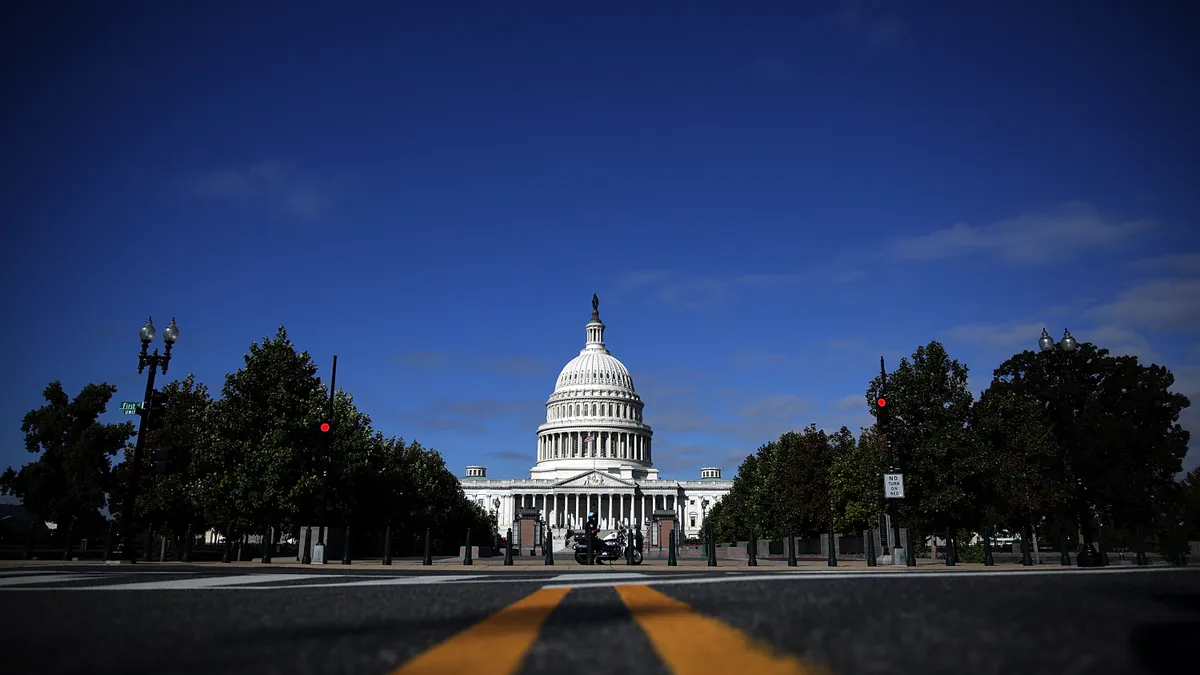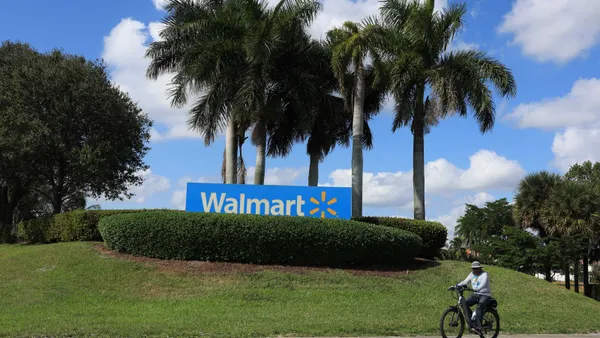The federal government has made a valiant effort to keep up with the fast-changing world of payments, but it’s falling behind the 50 states lately.
New York is a striking example of the phenomenon. Not only did that state pass a law requiring merchants to cap their credit card transaction surcharges and to better display them, the state’s governor, Kathy Hochul, is pursuing a proposal for buy now, pay later providers to be licensed.
New York follows New Jersey in passing a surcharge law. Down in Florida, the state is considering a law that would force merchants to accept cash, essentially prohibiting them from digital-only methods of payment. On the other coast, California regulators and Washington legislators are weighing guardrails for earned wage access after some states, including Nevada, passed laws.
State legislation on payments issues is pending in seven states already this year and was percolating in nearly 20 last year, according to information from the National Conference of State Legislatures.
All that state action is creating a speckled national approach to overseeing important innovations in financial services, specifically in payments. That outcome is seemingly at odds with an industry that very much transcends state lines, and increasingly even national boundaries. And with the advent of real-time payments, including the Federal Reserve’s new FedNow system, it’s all moving faster.
For fintechs eager to establish regulatory predictability for their businesses, there may be transitory benefits in winning a preferred state edict here or there. In the long term, though, it’s not likely to be beneficial to adapt corporate policies to 50 different legal frameworks. For consumers, it’s generally better to enjoy similar services and protections as they move from one state to another, especially given the rise in payments fraud.
Phil Goldfeder, CEO of the American Fintech Council, served in the New York legislature for five years, as an assemblyman from Queens, and he’s now crisscrossing the U.S. to influence fintech and payments legislation popping up all over the country. By contrast, it’s becoming increasingly difficult to get clarity from U.S. regulators and it’s even tougher to move legislation through Congress, he says.
“In the absence of federal guidelines or direction or action, oftentimes states will take it upon themselves to build out regulatory structures that will protect their constituents,” he said in an interview this week.
But he doesn’t believe the result is the best option for anyone, partly because state legislatures are often part-time bodies where elected officials are inundated by a slew of subject matters from guns to higher education. Action at the federal level better serves everyone, he says.
“Emerging fintech companies and markets require clarity on the regulatory structure to be successful,” he said. “The current 50-state patchwork is not helpful to the fintech industry and it’s even more difficult for consumers seeking to understand and access safe and reliable financial services.”
X, formerly known as Twitter, and its billionaire owner Elon Musk are finding that out the hard way as he drives a campaign to bring payment capabilities to that social media tool. He acknowledged recently that X is behind schedule in trying to land money licenses in 50 states. The company even seems a little uncertain as to how many of the licenses it’s won so far.
The Consumer Financial Protection Bureau, under Director Rohit Chopra, has been aggressive in identifying payments areas that require attention, from earned wage access to BNPL. But it has been slow to act, despite gathering lots of information. One notable exception: a recent proposal to better supervise big tech digital wallets.
Congress hasn’t fared much better. While some new payments and fintech concerns have been the subject of hearings on Capitol Hill, few bills have progressed.
With digital payments on the rise and next-generation tools driving toward national, if not international, reach, it would seem high time for the federal government to make more headway. Companies with nationwide operations and consumers with national exposure would be better served by a legal and regulatory infrastructure that surmounts state lines.













